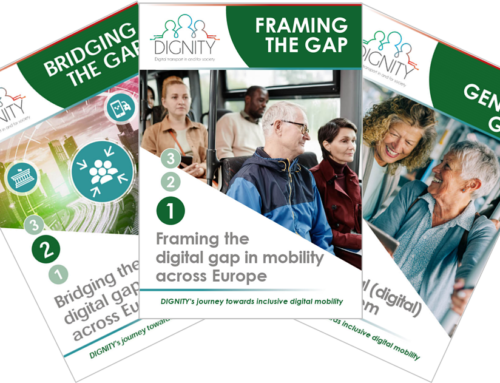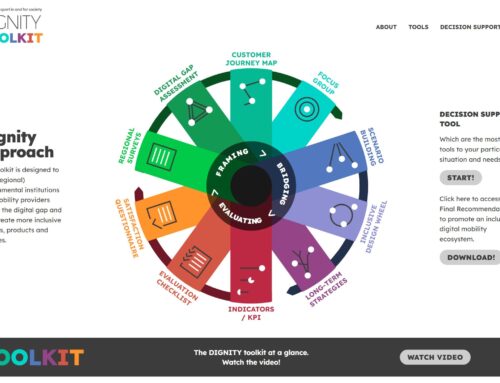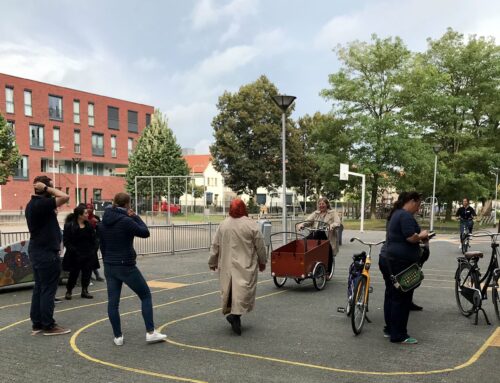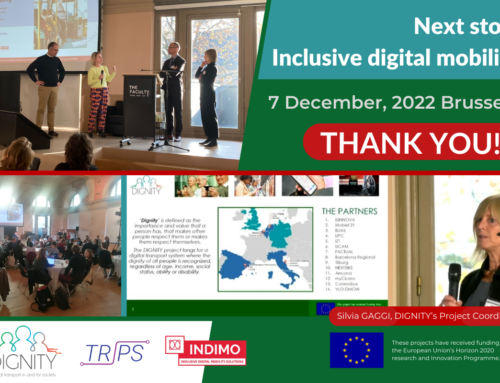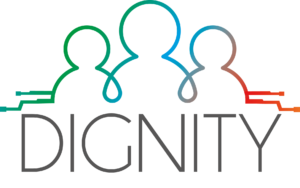38% of Flemish people risk digital exclusion. On what basis was this assessed? By people’s ability to process information online, communicate online, solve problems digitally and handle software. It might sound like a surprisingly high proportion of the population, but it boils down to two driving factors: a lack of digital skills or a lack of internet access. That is the conclusion of the Digital Inclusion Barometer, a large-scale digital inclusion study conducted in 2020 by the King Baudouin Foundation[1] in Belgium, which brings together results from the Socio-Cultural Shifts Survey², the Digimeter³, and the ICT and Internet Usage Survey by Statbel4 . These studies are conducted every year in Flanders.
These numbers were used to complete the DIGNITY Digital Gap Self-Assessment tool for the region of Flanders and have provided an insight into the digital skills and abilities of the population.
Digital skills decrease with age and increase with education level and income. The chart below adds together the number of non-users of digital products and users that have low digital skills to reveal the percentages of target groups that are generally considered to be at risk of digital exclusion in Flanders.
When it comes to poor families (household income >1200€) and individuals with a low education, up to 69% and 62% are at risk of digital exclusion respectively. Also striking, but not entirely unexpected, are the 58% of people aged 55-74 who appear to be at risk of digital exclusion. These are the hardest hit groups, although it was observed that young people and those with higher incomes also seem to be affected, albeit in smaller numbers and in different ways. There is no obvious disparity regarding digital vulnerability and gender in Flanders.
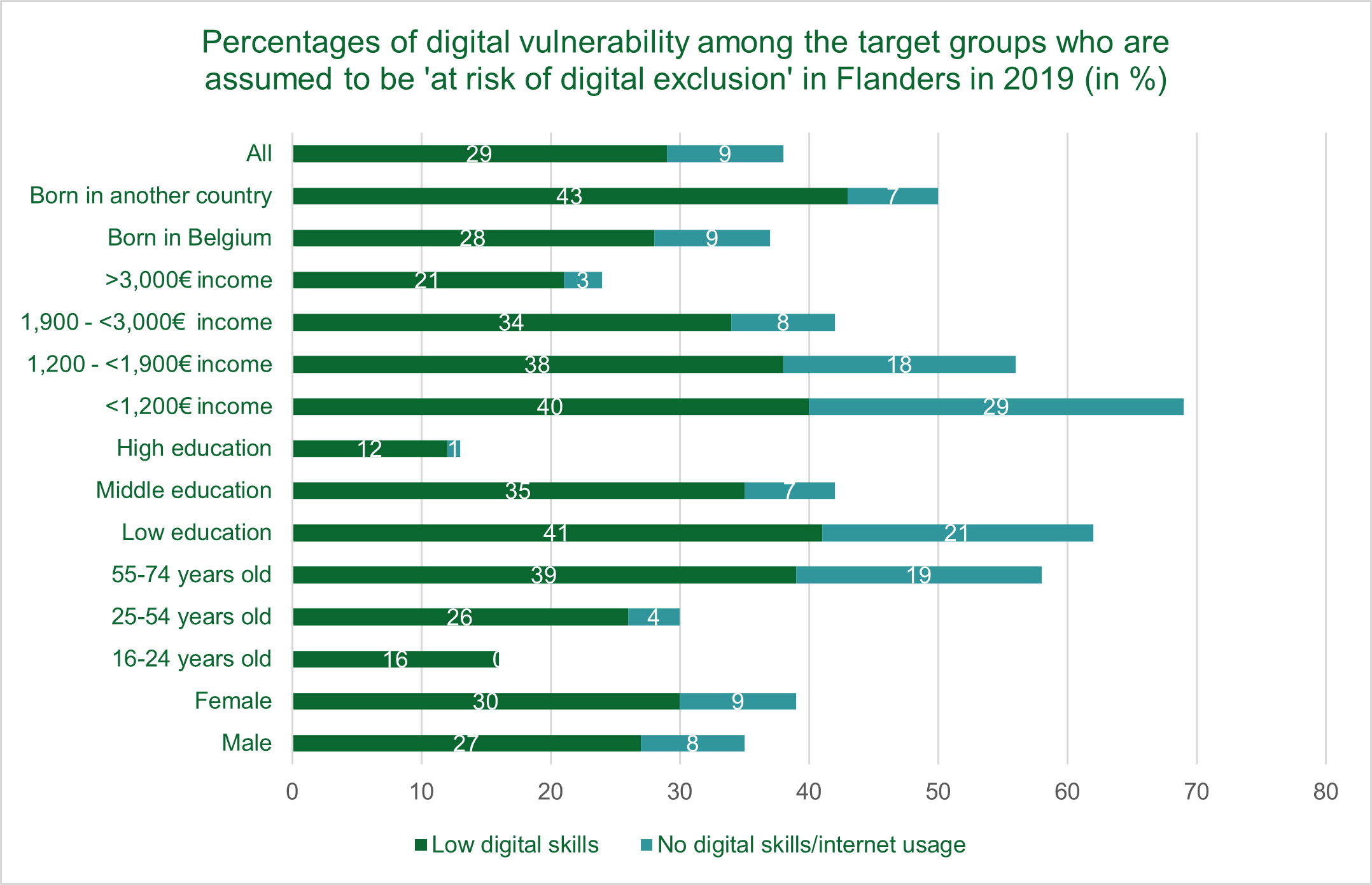
The COVID-19 crisis has reinforced this digital divide, bringing with it increased social inequality.
According to the King Baudouin Foundation, there are three forms of inequality behind the digital gap in Flanders:
- Inequality in access to digital products and services. Although 91% of the Flemish population are connected to the internet, there are large disparities within the different income groups. 29% of households on low incomes do not have access to the online world, compared to only 3% of households with high incomes.
- Inequality in digital skills. Of the 38% of the Flemish population that are at risk of digital exclusion, 29% have a low level of digital skills, and 9% are non-users of the internet. Results suggest that the lower the income and level of education, the lower the digital skills.
- Inequality in the use of digital products and services for essential matters. 86% of the Flemish population have at least the basic digital skills required to use applications such as internet banking, e-learning and e-commerce. The flip side of this are the 54% of internet users on low incomes that have never used the internet to conduct administrative business, even when asked.
One thing is certain: extra attention needs to be paid to these inequalities. As the digital world grows, a clear path needs to be set to a socially fair system in which nobody is excluded from being able to conduct necessary tasks.
Could there be a silver lining to the current COVID-19 crisis? It has brought to the forefront the problems already being experienced by vulnerable-to-exclusion groups with regards to online access to education, work, social contact and essential services.
Progress might still feel slow, but we are on the right track. The digital divide is not inevitable. By better measuring the current digital reality, we can understand the needs of the people affected by this problem and work towards appropriate actions. And let that be exactly the scope of the DIGNITY project!


